THEME
Movement, learning and social change
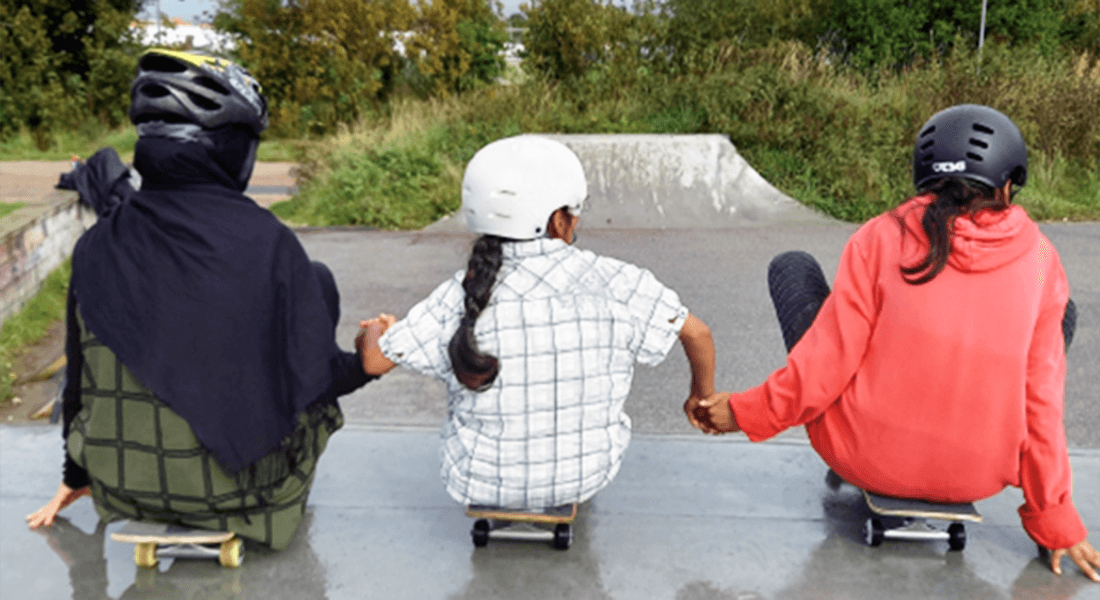
This theme focuses on how sport and movement, especially elements from dance, play, and martial arts, can support learning, development and identity processes in children, young people, adults, the elderly and in vulnerable target groups.
Here the focus is on how to work with movement as a developing and learning potential and as a pedagogical approach in day care, grade school, and youth education.
We also investigate how to work with the physical, psychological, emotional and social development dimensions of bodily learning in other movement contexts.
Here, central themes are: joy of movement, mastery of movement, emotional management, flow, and community, as well as the importance of sport for inclusion and recognition.
Research projects
This project aims to research, document and develop the dance therapeutic field and develop knowledge and practice about why and how dance movement therapy and other arts-based therapies can be used with a multitude of target groups.
The research field was developed through practical research and international, interdisciplinary and cross-sectoral research collaboration.
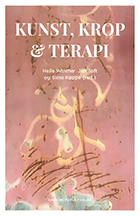 EMBODIMENT, ART AND THERAPY (Danish)
EMBODIMENT, ART AND THERAPY (Danish)
Edited by Helle Winther, Simo Køppe and Jim Toft.
All human experiences are connected with sensory experiences. Life is lived through the body, and it is through the sensitive body that we can have the experience of "finding home." Humans have always sought insight, well-being and emotional freedom through artistic expression. The idea that art, embodiment and therapy are closely connected is not new, and yet this book opens new avenues.
The book portrays forms of therapy that can be used with many target groups. The authors, who are researchers, teachers and practitioners, show, based on theory, research and concrete cases, how the body and art can be used in therapeutic work.
The reader gains insight into internationally established forms of therapy: dance therapy, music therapy, drama therapy, visual art therapy, play therapy and body psychotherapy - and into more recently developed approaches such as writing therapy, nature therapy and family sports in a therapeutic setting.
Funded by
Department of Psychology. University of Copenhagen.
Project period: 2022 - 2026.
Publications
Winther, H. (2023). Danseterapi (DMT) - når livet er i bevægelse. I H. Winther, J. Toft, & S. Køppe (red.), Kunst, Krop og Terapi (s. 51-82). Hans Reitzels Forlag. (Danish)
Winther, H., Toft, J., & Køppe, S. (red.) (2023). Kunst, Krop og Terapi. Hans Reitzels Forlag. (Danish)
Winther, H. (2023). The happiest hour in the week: Memory Dance and Dance Movement Therapy for elderly people living with dementia. I S. Burridge, & C. Svendler Nielsen (red.), Dance On!: Dancing Through Life (s. 216-225). Routledge.
Contact
Research leader Associate Professor Helle Winther
People with dementia often experience memory problems, loss of independence and difficulties in communication.
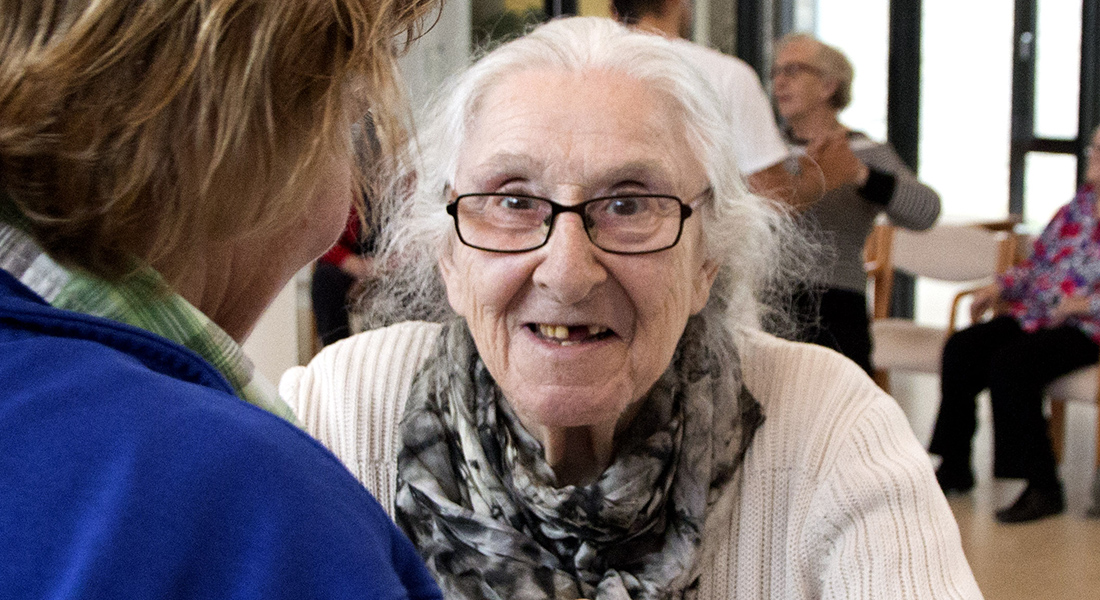
This project investigates how dance can contribute to the joy of movement, movement motivation, and increased social participation for people living with dementia.
Cooperation with Team Sport and Health.
Publication
Winther, H. (2023). The happiest hour in the week: Memory Dance and Dance Movement Therapy for elderly people living with dementia. I S. Burridge, & C. Svendler Nielsen (red.), Dance On!: Dancing Through Life (s. 216-225). Routledge.
Funded by
Nordea-fonden
University of Copenhagen
Project period: 2021 - 2023
Contact
Research leader Associate Professor Helle Winther
Associate Professor Jesper Lundbye-Jensen
Moving Families is a practice-based research project that aims to strengthen the well-being of vulnerable children through a holistic movement effort for refugee families in Red Cross living units.
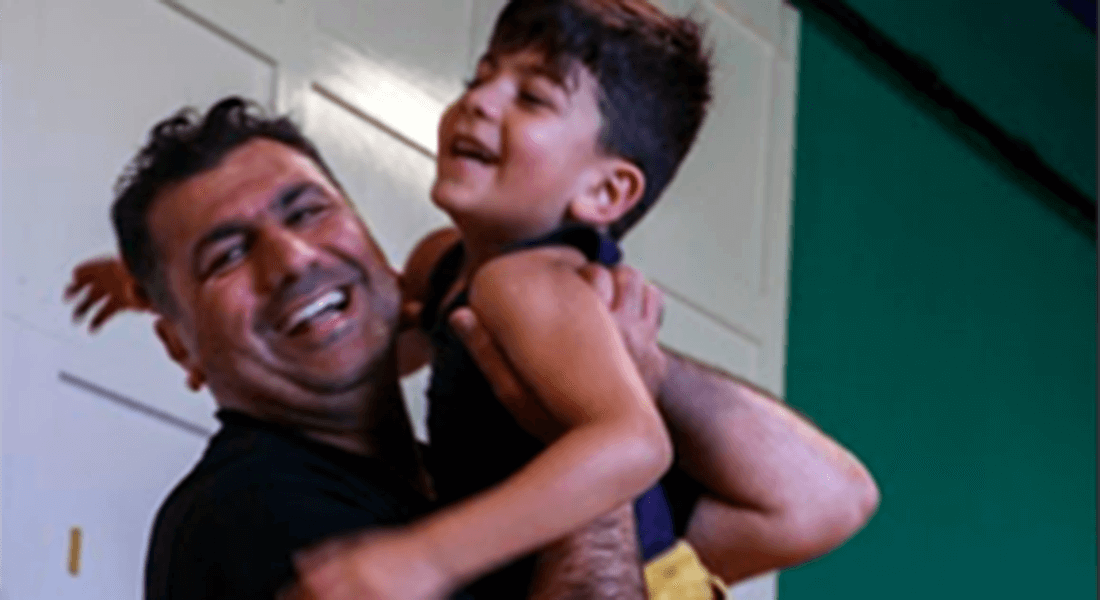
The project examines whether and how play, dance and holistic movement activities can create joy, contact and life-giving attachment processes between children and parents, thus strengthening the well-being of vulnerable children.
Publications
Winther, H., Johansen, M., & Baumgarten, L. G. (2023). Moving Families - bevægelse og leg i en terapeutisk setting. I H. Winther, J. Toft, & S. Køppe (red.), Kunst, Krop og Terapi (s. 307-326). Hans Reitzels Forlag. (Danish)
Baumgarten, L. G., Johansen, M., & Winther, H. (2023). Holistic movement activities with refugee families: the importance of attachment processes. Body, Movement and Dance in Psychotherapy, 18 (1), 4-21.
Funded by
Project period: 2019 - 2025.
Contact
Research leader Associate Professor Helle Winther

This is a holistic movement project for 10-15 year old children in asylum centres. On the Move is based on holistic movement activities that can span across age, cultural background and language skills. The project aims at supporting the children’s physical, psychological, and social development processes.
The project is a unique partnership between the Red Cross Asylum and NEXS with DGI as a collaboration partner. It was developed by closely connecting practice, post-graduate education and research.
Publications
Johansen, M., & Winther, H. (2024). "Vi flyver" - følelser, fordybelse og forbundethed: Fortællinger fra en holistisk legende bevægelsespraksis med børn på asylcentre. MOV:E, 2024(15), 6-22. (Danish)
Winther, H., Johansen, M., Vestergaard- Andersen, L., Baumgarten, L. G., & Askov, M. A. (2024). On The Move: Holistic Playful Movement Activities for Children in Vulnerable Situations. Red Cross Asylum.
Winther, H., Johansen, M., Vestergaard- Andersen, L., Baumgarten, L. G., & Askov, M. A. (2024). On the Move: Helhedsorienterede bevægelsesaktiviteter med børn i sårbare positioner. Røde Kors Asyl. (Danish)
Funded by
Contact
Research leader Associate Professor Helle Winther
PhD student Maise Johansen
Rehabilitation with play and movement activities for pre-school children (1-5 years) with cancer
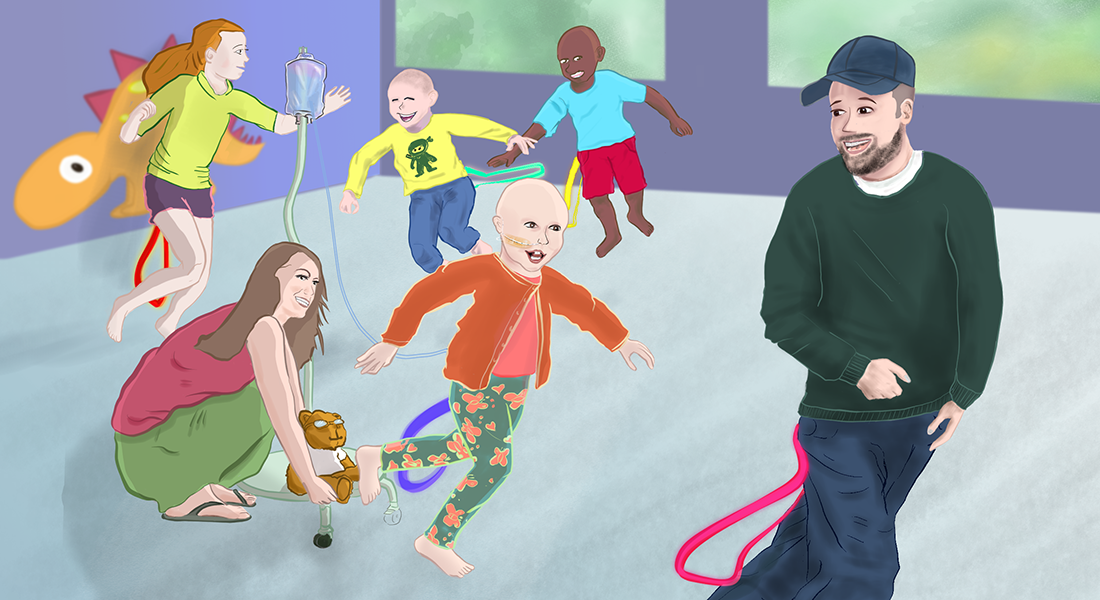
This research project is a rehabilitation project originating from Rigshospitalet's Children's Oncology Laboratory (Bonkolab) in collaboration with the Clinic for Ergo- and Physiotherapy at Rigshospitalet, the Children's Cancer Department at Rigshospitalet and NEXS.
Project RePlay aims to:
- Investigate the effect of a six-month structured, active play intervention aimed towards gross motor function in children with cancer aged 1-5 years, as compared to a control group receiving standard treatment.
- Investigate children with cancer and their parents' experiences with structured, active play during treatment, including the influence on the children's social and personal development.
Publications
Pouplier, Anna ; Larsen, Hanne Bækgaard ; Christensen, Jan ; Schmidt-Andersen, Peter ; Winther, Helle ; Fridh, Martin Kaj. / The rehabilitation including structured active play (RePlay) model: A conceptual model for organizing physical rehabilitation sessions based on structured active play for preschoolers with cancer. I: Frontiers in Pediatrics. 2022 ; Bind 10.
Funded by
Contact
PhD student Anna Pouplier, anna.pouplier@regionh.dk
Associate Professor Helle Winther, PhD supervisor.
This project has both theory-developing, practical and innovative dimensions. It documents how and why movement, play and dance can create flow, community, joy in movement, and personal development in children and young people's learning and development processes.
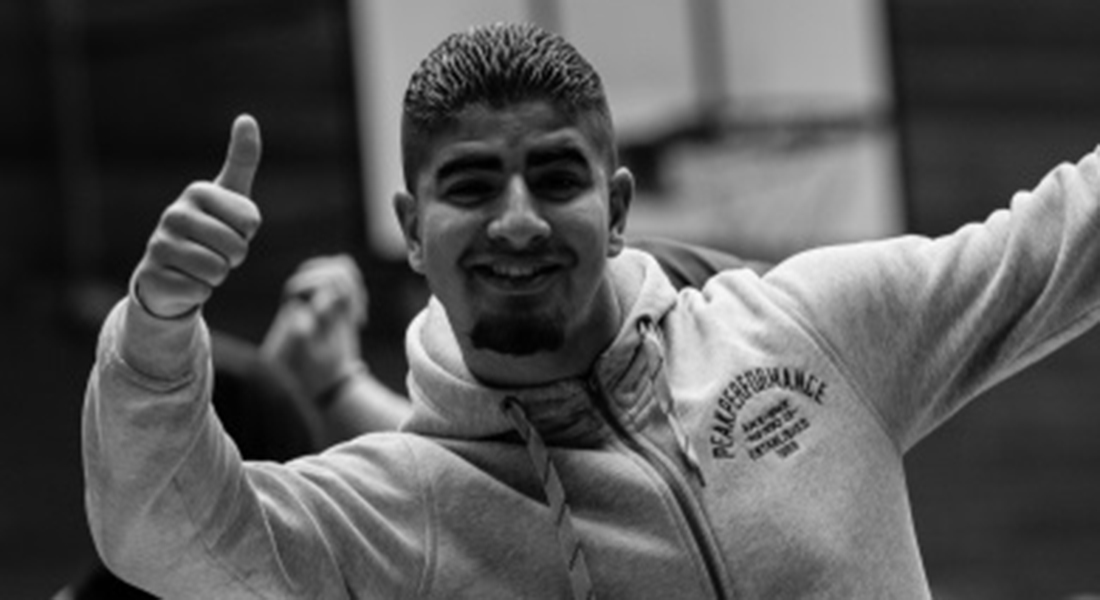
The project is based on a holistic understanding of the body.
In movement psychology, the focus is on the close interaction between the physical, psychological, emotional, social, cultural and spiritual dimensions of movement, which influence the development and well-being of children and young people in communities.
The focus is particularly on how movement can support vulnerable children's emotional processes and bodily resources, thus stimulating positive development. By including the importance of movement, teachers gain insight into the importance of basic emotions in movement education.
Publications
Winther, H. (2022). De syv bevægelsesdimensioner – eksistens og resonans i idrætsundervisningen. GISP, (178), 26-29. (Danish)
Winther, H. (2020). Learn through the body. I Learn Through The Body (s. 4-24). FFDs Forlag. Lessons from the Folk High School Bind 9.
Winther, H. (2017). Bevægelse og flow i børn og unges lære-, være- og udviklingsprocesser: Introduktion til en praksisnær bevægelsespsykologisk teori. Unge Paedagoger, 2017(1), 36-44. (Danish)
Christensen, H., Stavad, S. N., & Winther, H. (2017). Bevægelse mod mobning: Fra negativt klassemiljø til glædesfyldte fællesskaber i folkeskolen. idrottsforum.org, 1-16. (Danish)
Winther, H. (2015). Alle kan danse - improvisation, gruppedynamik og energi. I H. Winther, L. Engel, M-B. Nørgaard, & M. Herskind (red.), Fodfæste og Himmelkys: Undervisningsbog i Bevægelse, Rytmisk Gymnastik og Dans (2. udg., s. 154-178). Billesøe og Baltzer. (Danish)
Winther, H. (2014). Grundfølelsernes liv og funktion i idræts- og bevægelsesundervisning - et allestedsnærværende læringspotentiale. idrottsforum.org, 1-12. (Danish)
Funded by
University of Copenhagen.
Contact
Associate Professor Helle Winther
COMPLETED PROJECT
Project period: 2013 - 2017.
In Outer Nørrebro, a district with a large proportion of people with an ethnic origin other than Danish, this project took its starting point from the daily life of young people, and especially boys from 6th-9th grade at Rådmandsgades School.
The purpose of the project was to challenge the young people to work with "life skills" and active citizenship, so that they actively experience being able to take responsibility for themselves and others in the arenas where they act in everyday life.
This was done by creating a community for the boys around a "common third" (a team game project and coaching/mentoring).
The concepts of life skills, life skills, active citizenship and social cohesion are central to the project, which intends to develop models that can also be used outside "2200 Copenhagen N".
Publications
Ryom, K. (2017). Unge, holdspil og medborgerskab: Det dårlige selskab? Et lokalt aktionsforskningsprojekt på Ydre Nørrebro. Ph.d. afhandling. SL grafik. (Danish)
Ryom, K., Wikman, J. M., & Stelter, R. (2021). Supporting self-concept in school settings targeting migrant background boys. Scandinavian Journal of Educational Research, 65(4), 676-692.
Ryom, K & Stelter, R 2020, 'Motionsfodbold og medborgerskab: Fodbold og samskabelse som ramme for udvikling og medborgerskab hos udsatte drenge', Forum for Idraet, vol. 35, no. 1, pp. 71-82. (Danish)
Ryom, K. E., & Stelter, R. (2018). Idrætspsykologi med et community psykologisk afsæt: Erfaringer fra et socialt eksperiment i København, Danmark. In T. Haugen, & R. Høigaard (Eds.), Trender i Idrettpsykologisk Forskning i Skandinavia (pp. 121-143). Cappelen Damm Akademisk. (Danish)
Ryom, K. E., Maar Andersen, M., & Stelter, R. (2017). Coaching at-risk youth in a school within a socially challenging environment. Improving Schools, 20(2), 143-160.
Ryom, K. E., Stelter, R., & Plannthin, L. (2014). Gruppecoaching og inklusion af udsatte drenge i skolen. Kvan - et tidsskrift for læreruddannelsen og folkeskolen, 34 (100), 78-90. (Danish)
Funded by
Contact
Professor Reinhard Stelter
